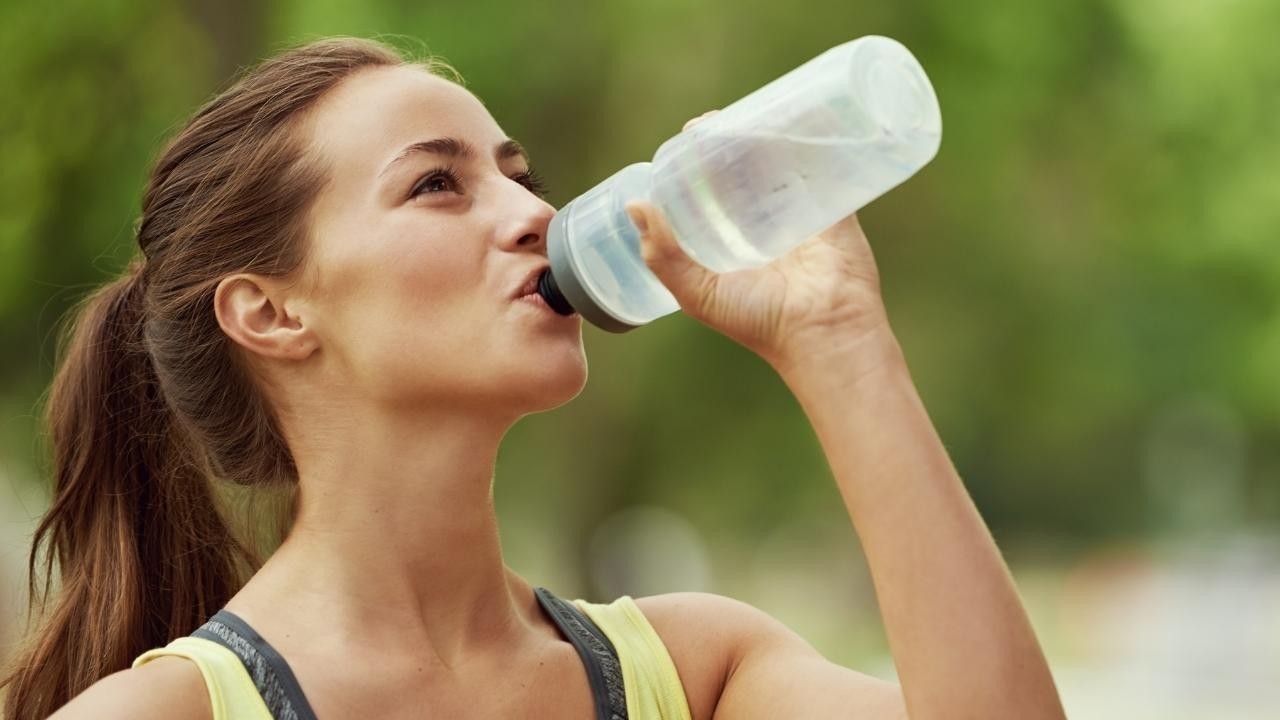
Post by : Manju Negi
Unlocking the Power of Protein: The Benefits and Considerations of a High-Protein Diet
Certainly! High-protein diets have become all the rage, captivating fitness buffs, those aiming to shed pounds, and folks keen on wellness. They're touted for packing on muscle, curbing hunger, and facilitating rapid weight drop. But what's the secret behind their effectiveness, and should we watch out for any drawbacks? Let's delve into the nitty-gritty.
The magic of high-protein diets lies in their ability to supercharge muscle growth. You see, protein is the building block of muscles. When you consume ample protein, your body has the necessary resources to repair and build muscle tissue, leading to that coveted sculpted physique.
Moreover, protein has a remarkable ability to keep hunger at bay. Unlike carbs and fats, protein takes longer to digest, keeping you feeling full for longer stretches. This means fewer cravings, fewer trips to the snack cupboard, and potentially fewer calories consumed overall—music to the ears of anyone aiming to shed excess weight.
But like with most things in life, there's a flip side to the high-protein coin. Downing excessive amounts of protein can put strain on your kidneys, as they work overtime to process the surplus. Plus, not all sources of protein are created equal. While lean meats, fish, eggs, and legumes are stellar choices, loading up on processed meats or relying solely on protein supplements can lead to a host of health woes.
Furthermore, neglecting other vital nutrients in favor of protein might leave you shortchanged on essential vitamins and minerals. A balanced diet is key to overall well-being, so don't let protein hog the spotlight at the expense of other nutritional goodies.
So, while high-protein diets can be a boon for muscle growth and weight management, it's crucial to strike a balance. Opt for lean, wholesome sources of protein, and complement your meals with a rainbow of fruits, veggies, and whole grains. Your body will thank you for it, inside and out!
The Basics of a High Protein Diet
A high protein diet revolves around prioritizing foods abundant in protein, which are essential for muscle repair and growth, among other bodily functions. This diet promotes the consumption of lean meats like chicken, turkey, and beef, as well as fish, eggs, dairy products, legumes, nuts, and seeds.
By opting for these protein-rich options, you're aiming to increase the proportion of your daily calorie intake derived from protein. Typically, this means consuming about 25-30% or more of your total calories from protein sources. This contrasts with the usual intake, where only 10-15% of calories come from protein.
Proteins are made up of amino acids, which serve as the building blocks for tissues, muscles, and organs. When you consume more protein, your body has a surplus of these amino acids, enabling it to repair and rebuild muscles more efficiently. This can be especially beneficial for athletes or individuals engaged in intense physical activities.
Additionally, a high protein diet can aid in weight management. Protein-rich foods tend to be more satiating than carbohydrates or fats, which means you may feel fuller for longer periods, potentially reducing overall calorie intake. This aspect of protein can be particularly helpful for those looking to lose weight or maintain a healthy weight.
Moreover, increasing protein intake while moderating carbohydrate and fat consumption can help stabilize blood sugar levels, which is crucial for individuals with diabetes or those at risk of developing the condition. By focusing on protein-rich foods, you can minimize spikes in blood sugar levels that often occur after consuming high-carb meals.
However, it's essential to approach a high protein diet with balance. While protein is vital, it's equally important to include a variety of nutrients in your diet, including carbohydrates and healthy fats. Also, consulting with a healthcare professional or a nutritionist before making significant dietary changes is advisable, as individual nutritional needs vary based on factors such as age, gender, activity level, and overall health status.
In summary, a high protein diet emphasizes the consumption of protein-rich foods to support muscle growth, aid in weight management, and stabilize blood sugar levels. By incorporating a variety of protein sources into your meals while maintaining balance with other nutrients, you can optimize your overall health and well-being.
The Science Behind Protein
Protein is like the building blocks of our body, essential for keeping us strong and healthy. Imagine it as the construction workers in a building site—they're busy repairing and building new structures all the time. That's what protein does inside us—it repairs tissues, builds muscles, and even helps make important stuff like hormones and enzymes.
One big thing about protein is that our bodies can't stash it away for later like they do with fats or carbs. Nope, we need a regular supply. So, it's crucial to chow down on protein-rich foods each day to keep our bodies ticking over nicely.
Now, let's peek into the science bit. Protein is made up of tiny building blocks called amino acids. Think of these as the bricks that make up a Lego house. There are twenty different types of amino acids, and our bodies can make some of them all by themselves. But there are nine amino acids we can't produce, so we gotta get them from the food we eat—these are called the "essential" amino acids.
So, when we munch on protein-packed foods like meat, fish, eggs, dairy, nuts, and beans, our bodies break down the protein into those amino acids. Then, they use these amino acids to rebuild and repair all sorts of bits and pieces inside us, from muscles and skin to hair and nails.
But it's not just about repairing and building stuff. Protein is like the body's little helpers—they also assist in making enzymes and hormones. Enzymes are like the chemical messengers that keep everything running smoothly, while hormones are the body's way of communicating between different organs and systems.
So, there you have it—the lowdown on protein. It's not just about muscles and meatheads; it's an essential part of keeping our bodies functioning like well-oiled machines. So next time you're tucking into a delicious steak or enjoying a handful of nuts, remember—you're not just feeding your taste buds, you're giving your body the fuel it needs to thrive.
Benefits of a High Protein Diet
Muscle Growth and Repair: Protein plays a crucial role in muscle growth and repair. When you engage in activities like strength training or any form of exercise that puts stress on your muscles, tiny tears occur in the muscle fibers. This might sound alarming, but it's actually a natural part of the muscle-building process.
Here's where protein steps in as the superhero of your muscle recovery story. When you consume protein-rich foods, your body breaks them down into amino acids, which are essentially the building blocks of proteins. These amino acids then travel to your muscles, where they get to work repairing those tiny tears and building new muscle tissue in the process.
For athletes and regular gym-goers, ensuring an adequate intake of protein is like giving your muscles the tools they need to rebuild and grow stronger after each workout session. But it's not just about the quantity of protein; quality matters too. Opting for lean sources of protein like chicken, fish, tofu, beans, and legumes not only provides your muscles with the necessary amino acids but also comes with additional nutrients essential for overall health.
Moreover, timing matters when it comes to protein consumption for muscle growth and repair. Many experts recommend consuming protein-rich foods or supplements within the first hour or two after a workout, as this is when your muscles are most receptive to nutrient uptake, aiding in faster recovery and muscle synthesis.
Incorporating a high-protein diet into your routine isn't just beneficial for athletes and gym enthusiasts; it can also support anyone looking to maintain muscle mass as they age or recover from injuries. Plus, protein-rich foods can help you feel fuller for longer, making them a valuable component of any weight management plan.
So, whether you're pumping iron at the gym or simply aiming to live a healthier lifestyle, remember that protein isn't just for bodybuilders—it's the key ingredient for strong, resilient muscles that support you in whatever activities life throws your way.
Weight Loss and Satiety: Protein isn't just about building muscles; it's also a secret weapon for shedding those extra pounds. How? Well, let's break it down.
First off, protein has a unique ability to keep hunger at bay. When you eat protein-rich foods, your body releases hormones that signal fullness to your brain, making you feel satisfied and less likely to reach for that bag of chips or candy bar between meals. This makes it easier to stick to your calorie goals and avoid overeating.
But it doesn't stop there. Protein also gives your metabolism a little boost thanks to something called the thermic effect of food (TEF). Basically, it takes more energy for your body to digest and process protein compared to fats and carbs. So, by simply chowing down on that chicken breast or digging into a Greek yogurt, you're actually burning more calories in the process.
And here's the kicker: when you combine protein with a balanced diet and regular exercise, you create the perfect recipe for weight loss success. Not only does protein help you feel fuller for longer, but it also supports muscle growth and maintenance, which is crucial for keeping your metabolism revved up and burning calories efficiently.
So, if you're looking to slim down and feel satisfied while doing it, make sure to include plenty of protein-rich foods in your meals and snacks. Think eggs for breakfast, grilled chicken salad for lunch, and a protein-packed snack like nuts or cottage cheese to keep cravings at bay between meals.
Remember, it's not just about cutting calories; it's about fueling your body with the right nutrients to support your weight loss goals in a sustainable and healthy way. And with protein as your ally, you'll be well on your way to achieving the results you desire.
Metabolic Boost: When it comes to revving up your metabolism, protein is like adding fuel to the fire. Here's how it works:
When you consume protein-rich foods, your body kicks into high gear to break down and process them. This process, known as the thermic effect of food (TEF), requires energy, meaning your body burns calories just by digesting protein. And guess what? The TEF for protein is higher compared to fats and carbs, so you're essentially getting more bang for your buck in terms of calorie burning.
But that's not all. Protein also plays a crucial role in muscle repair and growth. When you engage in activities like strength training or even just daily movement, you create tiny tears in your muscles. To repair these tears and build new muscle tissue, your body needs energy. And where does it get that energy from? You guessed it—calories!
So, by increasing your protein intake, you're not only boosting the TEF and burning more calories during digestion, but you're also providing your body with the fuel it needs to repair and grow muscles. And here's the kicker: the more muscle you have, the higher your resting metabolic rate. Translation? You'll be burning more calories even when you're just chilling on the couch.
Incorporating protein-rich foods into your meals and snacks throughout the day can help keep your metabolism fired up and running smoothly. Think eggs for breakfast, grilled chicken for lunch, and a protein shake or Greek yogurt as a post-workout snack.
So, if you're looking to give your metabolism a boost and burn more calories throughout the day, make protein your new best friend. Your body will thank you for it!
Improved Bone Health: Let's debunk a common myth: protein is actually good for your bones! Here's how it works:
Protein isn't just for building muscles; it plays a vital role in maintaining strong and healthy bones too. You see, when you consume protein-rich foods, your body not only uses the protein for muscle repair and growth but also for bone health. Here's the cool part: protein helps your body absorb calcium more efficiently, which is essential for building and maintaining strong bones.
But that's not all. Protein also stimulates bone metabolism, meaning it encourages the process of bone formation and remodeling. This helps to keep your bones strong and less susceptible to fractures.
Now, you might have heard some rumors floating around about protein being bad for your bones. But here's the truth: research has shown that higher protein intake is actually associated with better bone density and a reduced risk of fractures, especially as you age.
So, if you want to keep your bones strong and healthy, don't skimp on the protein! Incorporate plenty of protein-rich foods into your diet, like lean meats, fish, eggs, dairy products, beans, and nuts. Not only will you be supporting your muscles, but you'll also be giving your bones the love and care they deserve.
Remember, a balanced diet that includes adequate protein is key to overall bone health, so don't be afraid to enjoy those protein-packed meals and snacks. Your bones will thank you for it in the long run!
Blood Sugar Regulation: Protein isn't just a muscle-builder; it's also a blood sugar stabilizer! Here's the lowdown:
When you eat a meal rich in carbohydrates, your blood sugar levels can skyrocket, leading to that dreaded sugar crash later on. But adding protein to the mix can help keep those blood sugar levels in check. Here's how it works:
When you consume protein along with carbohydrates, it slows down the digestion and absorption of those carbs. This means that instead of experiencing a rapid spike in blood sugar followed by a sudden crash, your blood sugar levels rise more gradually and stay steady for longer.
This is particularly beneficial for individuals with diabetes or insulin resistance, as it can help prevent those dangerous fluctuations in blood sugar levels.
But the benefits don't stop there. Protein also helps you feel fuller for longer, which can prevent overeating and cravings for sugary snacks, further supporting blood sugar regulation.
So, if you're looking to keep your blood sugar levels stable and avoid those rollercoaster highs and lows, make sure to include plenty of protein in your meals and snacks. Think eggs for breakfast, chicken breast for lunch, and a handful of nuts for a mid-afternoon pick-me-up.
By incorporating protein into your diet, you'll not only be supporting your muscles and overall health but also keeping your blood sugar levels on an even keel. It's a win-win!
Potential Downsides and Considerations
Kidney Health: Let's dive into the delicate balance of protein and kidney health:
For most healthy individuals, incorporating protein into their diet is not a cause for concern. However, for those with pre-existing kidney conditions, it's essential to tread carefully.
Here's the deal: when you consume protein, your body breaks it down into waste products, including urea and ammonia. These waste products are then filtered out of your blood by your kidneys and excreted through urine. Now, for healthy kidneys, this process is a breeze. But for individuals with kidney issues, such as chronic kidney disease, the additional strain of processing excessive protein can be problematic.
You see, when your kidneys are already struggling to function properly, asking them to work overtime to filter out excess waste products from too much protein can further exacerbate the problem. This can potentially lead to further kidney damage and complications.
So, if you have kidney issues or are at risk of developing them, it's crucial to be mindful of your protein intake. This doesn't necessarily mean you have to cut out protein altogether—far from it! It just means being smart about the types and amounts of protein you consume.
Opt for high-quality, lean sources of protein like chicken, fish, tofu, and legumes, and aim for a balanced diet that includes a variety of nutrients. And if you have any concerns about your kidney health or protein intake, it's always a good idea to consult with a healthcare professional who can provide personalized advice and guidance.
Remember, when it comes to your kidneys, it's all about finding the right balance to support optimal health and function.
Nutrient Imbalance: While protein is undoubtedly important for muscle growth, satiety, and overall health, focusing solely on protein-rich foods can lead to a potential downside: a lack of other essential nutrients.
You see, carbohydrates and fats also play critical roles in supporting various bodily functions. Carbs are your body's primary source of energy, while fats are necessary for hormone production, cell structure, and nutrient absorption. If you're too fixated on loading up on protein, you might inadvertently skimp on these other important nutrients.
This imbalance can have several consequences. For one, you might find yourself feeling low on energy or experiencing fluctuations in mood and concentration due to insufficient carbohydrate intake. Additionally, a lack of healthy fats could impact your hormone levels and overall well-being.
So, what's the solution? It's all about balance, my friend. Instead of focusing solely on protein, aim for a well-rounded diet that includes a variety of nutrient-dense foods. Incorporate plenty of fruits, vegetables, whole grains, and healthy fats into your meals to ensure you're getting all the essential nutrients your body needs to thrive.
By taking a balanced approach to your nutrition, you'll not only support your overall health and well-being but also ensure that you're giving your body the fuel it needs to perform at its best. So go ahead, enjoy that chicken breast or tofu stir-fry, but don't forget to round out your plate with a colorful array of other nutrient-rich foods. Your body will thank you for it!
Digestive Issues: While protein is essential for muscle repair and overall well-being, it's important to recognize that high protein diets can sometimes throw your digestive system a curveball, leading to issues like constipation.
Here's the deal: when you load up on protein-rich foods, you might inadvertently skimp on other important nutrients, like fiber. And fiber is like the superhero of your digestive system—it keeps things moving smoothly and prevents constipation.
So, if you're experiencing digestive woes on a high protein diet, it might be time to amp up your fiber intake. Incorporating fiber-rich vegetables like broccoli, spinach, and kale, as well as whole grains like quinoa, brown rice, and oats, can help keep things moving along in your digestive tract.
But here's the thing: you don't have to choose between protein and fiber. You can have your cake (or should I say, chicken breast?) and eat it too! By balancing your protein intake with plenty of fiber-rich foods, you'll support both your muscles and your digestive system.
And don't forget to stay hydrated! Drinking plenty of water is also crucial for maintaining healthy digestion, so be sure to sip on H2O throughout the day.
So, if you're feeling backed up on your high protein diet, don't panic. Simply incorporate more fiber-rich foods into your meals and stay hydrated, and your digestive system will thank you for it. It's all about finding that perfect balance for a happy, healthy gut!
Sustainability: For many people, sticking to a high protein diet can be tough, especially if you're a vegetarian or vegan. While protein is important for muscle growth and overall health, relying solely on animal-based sources can feel limiting and might not align with your personal values or dietary preferences.
That's where sustainability comes into play. Instead of forcing yourself into a diet that feels like a chore, it's crucial to find a dietary pattern that you actually enjoy and can stick with in the long run.
For vegetarians and vegans, this might mean exploring plant-based sources of protein like tofu, tempeh, lentils, beans, and quinoa. Not only are these options packed with protein, but they also come with a variety of other nutrients and flavors that can keep your meals interesting and satisfying.
But sustainability isn't just about what you eat—it's also about how you eat. Instead of focusing solely on macronutrients like protein, try to adopt a more holistic approach to your diet. Fill your plate with a colorful array of fruits, vegetables, whole grains, and healthy fats to ensure you're getting a wide range of nutrients to support your overall health and well-being.
And don't forget to listen to your body! If a high protein diet just doesn't feel right for you, that's okay. There's no one-size-fits-all approach to nutrition, so experiment with different dietary patterns until you find what works best for your body and lifestyle.
At the end of the day, the most sustainable diet is one that you can stick with happily and healthily for the long haul. So, whether you're a meat-lover, a plant-based enthusiast, or somewhere in between, prioritize finding a dietary pattern that nourishes both your body and your soul. That's the key to sustainable eating that lasts a lifetime.
How to Implement a High Protein Diet
Choose Quality Sources: When it comes to protein, quality matters just as much as quantity. Here's the scoop on choosing the best protein sources for your health:
First off, let's talk about lean meats. Think chicken breast, turkey, and lean cuts of beef or pork. These options are not only packed with protein but also lower in unhealthy fats, making them a smart choice for your heart health.
Next up, fish. Not only is fish a great source of protein, but it's also loaded with omega-3 fatty acids, which are essential for brain health and reducing inflammation in the body. Opt for fatty fish like salmon, mackerel, and sardines for an extra boost of heart-healthy fats.
Eggs are another protein powerhouse, offering a complete source of protein along with essential vitamins and minerals. Plus, they're incredibly versatile and can be enjoyed in countless ways, from omelets to frittatas to simple hard-boiled eggs.
For those who prefer a plant-based diet, there are plenty of protein-rich options to choose from. Tofu, tempeh, and edamame are all excellent sources of plant-based protein, while legumes like beans, lentils, and chickpeas provide a hearty dose of both protein and fiber.
And let's not forget about quinoa—a gluten-free grain that's not only high in protein but also contains all nine essential amino acids, making it a complete protein source. Use it as a base for salads, stir-fries, or as a substitute for rice or pasta.
When selecting your protein sources, it's essential to steer clear of processed meats like bacon, sausage, and deli meats. These options are often high in unhealthy fats, sodium, and preservatives, which can increase your risk of heart disease and other health issues.
So, whether you're a meat-eater, pescatarian, vegetarian, or vegan, there are plenty of quality protein sources to choose from. By opting for lean meats, fish, eggs, legumes, and plant-based proteins like tofu and quinoa, you'll not only support your muscle growth and overall health but also enjoy delicious and satisfying meals along the way.
Balance Your Plate: Creating a balanced plate is like crafting a masterpiece for your health. Here's how to make it happen:
Start with your protein. Whether it's grilled chicken, tofu, or beans, make sure to include a good source of protein in every meal. Protein helps to build and repair tissues in your body, keeping you strong and satisfied.
Next, add some healthy fats. Avocado, nuts, seeds, and olive oil are all great options. Healthy fats are essential for brain function, hormone production, and nutrient absorption, so don't skimp on them!
Now, it's time for the veggies. Load up your plate with a rainbow of colors—think leafy greens, bell peppers, carrots, and tomatoes. Vegetables are packed with vitamins, minerals, and antioxidants that support your immune system and overall health.
Finally, don't forget about whole grains. Quinoa, brown rice, oats, and whole wheat bread are all excellent choices. Whole grains provide fiber, which helps to keep you feeling full and satisfied while also supporting digestive health.
By combining protein with healthy fats, vegetables, and whole grains, you're ensuring that your body gets a balanced intake of all essential nutrients. Plus, you'll enjoy a variety of flavors and textures that make every meal more satisfying and enjoyable.
So, whether you're whipping up a stir-fry, salad, or grain bowl, remember to balance your plate with a mix of protein, healthy fats, vegetables, and whole grains. Your body will thank you for it with boundless energy, vibrant health, and delicious meals every day!
Stay Hydrated: When you consume more protein, your body works harder to break it down. This process generates more nitrogen waste, which your kidneys need to filter out of your bloodstream. To do this effectively, your kidneys require plenty of water. If you're not drinking enough, your kidneys have to work even harder, which can put a strain on them and potentially lead to problems over time.
That's why it's crucial to drink plenty of water throughout the day. Aim for at least 8 glasses, but you might need more depending on your activity level and overall protein intake. Carrying a water bottle with you and taking regular sips can help you stay hydrated without even thinking about it.
Hydration isn't just about kidney function, though. Proper hydration aids in digestion, helps maintain your body temperature, and keeps your skin looking healthy. Plus, staying hydrated can prevent that sluggish feeling you get when you're dehydrated, helping you stay energized and focused.
If plain water isn't your thing, you can mix it up with herbal teas, infused water with slices of lemon, cucumber, or mint, or even enjoy water-rich foods like fruits and vegetables. The important thing is to keep your fluid intake up to support your body's needs.
So, as you enjoy your protein-rich meals, don't forget to pair them with plenty of water. Your kidneys will thank you, and you'll feel better all around!
Monitor Your Health: Keeping an eye on your health is crucial, especially if you're following a high-protein diet. Regular check-ups with your healthcare provider can make all the difference. Here’s why:
When you increase your protein intake, it's important to ensure that your body, especially your kidneys, is handling it well. Protein metabolism generates more nitrogen waste, which your kidneys filter out. Overloading your kidneys with too much protein can strain them, so regular monitoring is essential to catch any issues early.
During your check-ups, your healthcare provider can perform tests to monitor your kidney function. These tests typically measure levels of waste products in your blood, like creatinine and urea. Keeping tabs on these levels ensures your kidneys are working properly and not being overburdened.
Additionally, regular visits to your healthcare provider allow you to discuss any other health concerns. They can offer personalized advice based on your overall health and any pre-existing conditions, making sure your high-protein diet is balanced and beneficial.
Here are a few tips for your check-ups:
Be Honest: Share details about your diet, exercise, and any supplements you're taking.
Ask Questions: If you're unsure about something, like how much protein is right for you, don't hesitate to ask.
Follow Up: If your provider suggests changes or additional tests, make sure to follow through.
Regular check-ups aren't just for people with known health issues—they're a proactive way to stay healthy. By monitoring your health regularly, you can make sure your high-protein diet is working for you, not against you.
In short, keep up with those doctor visits. They’re a vital part of ensuring your diet supports your overall health and well-being.
Summary: This article explores the multifaceted benefits and considerations of a high-protein diet. Protein is crucial for muscle growth, repair, and overall health, making it especially beneficial for athletes and those engaged in regular strength training. It aids in weight loss by reducing appetite and increasing feelings of fullness, while also boosting metabolism due to its higher thermic effect. Additionally, protein supports bone health, stabilizes blood sugar levels, and can be included sustainably in various diets, including vegetarian and vegan options. However, a balanced intake of all nutrients is essential to avoid digestive issues and nutrient imbalances. The article emphasizes the importance of staying hydrated and monitoring kidney health through regular check-ups to ensure a high-protein diet remains beneficial and safe.
Disclaimer: The information provided in this article by DXB News Network is for general informational purposes only. It is not intended as medical advice and should not be relied upon as such. Always consult with a healthcare provider before making any significant changes to your diet, especially if you have pre-existing health conditions or concerns. DXB News Network does not assume any responsibility for potential health issues arising from the use of the information contained in this article.

HUL Faces ₹1,986 Crore Tax Notice Over Valuation Dispute
Hindustan Unilever hit with ₹1,986 crore tax notice over related-party valuation and depreciation cl

Polestar Faces Nasdaq Warning Again Over $1 Price Rule
Polestar receives another Nasdaq non-compliance notice after shares fall to $0.26, raising fresh con

Indian-Origin CEO Accused in $500 Million Global Fraud
US-based CEO Bankim Brahmbhatt accused of a $500 million loan scam targeting BlackRock’s private-cre

Abu Dhabi to Launch 500 Smart, Eco-Friendly Cleaning Vehicles
Abu Dhabi to deploy 500 eco-friendly, AI-powered cleaning vehicles cutting emissions by 40% and enha

Rising Competition Challenges Coinbase’s Market Dominance
Coinbase beats Wall Street forecasts again, but as new crypto exchanges go public, fresh competition

Fabien Marchand — The Infinite Brushstroke of Freedom
French artist Fabien Marchand explores freedom, color, and emotion through his evolving art — bridgi

From Dubai to the World: Muhammad Hamza Raja Earns IFBB Pro Card in Czech Republic
Dubai-based Pakistani athlete Muhammad Hamza Raja earns his IFBB Pro Card at the Grand Prix PEPA Opa

Fabien Marchand — The Infinite Brushstroke of Freedom
French artist Fabien Marchand explores freedom, color, and emotion through his evolving art — bridgi

Dubai’s Healthy Food Revolution 5 Global Wellness Trends Transforming the City
Discover how Dubai is embracing a global wellness wave with plant based diets organic food and smart

Start Your Day with Chia Seeds for Stronger Healthier Hair Naturally
Discover how morning chia seeds boost hair growth add shine and strengthen roots naturally with easy

The Power of SPF Why Daily Sunscreen Use Protects Your Skin from Damage
Discover why daily sunscreen matters Learn SPF basics how to choose the right type and protect your

Simple Hydration Hacks to Help You Drink More Water Every Day
Stay refreshed with easy hydration hacks Learn fun natural ways to drink more water daily boost ener

The Healthy Side of Dubai Exploring the Nutritious Essence of Emirati Cuisine
Explore the healthy side of Dubai through Emirati cuisine Discover natural ingredients balanced flav

Affordable Makeup Dupes Discover Luxury Beauty Looks for Less
Discover the best affordable makeup dupes that match luxury brands in quality and style Get stunning

The Magic of Oils A Simple Guide to Choosing the Right One for Your Skin
Find the best natural oil for your skin type Learn how to hydrate balance and glow with the perfect